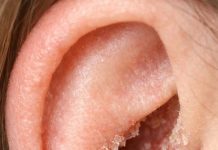It’s time to give up and let the clover do the work! Clover does not need to be mowed, watered, weeded or fertilized, and it is softer than grass.
You want to make your garden more sustainable and more respectful of wildlife, but you still want to have a lawn? Plant clover!
You can mix it with your current grass or have a lawn completely in clover.
Clover does not require fertilizer or herbicide and does not mow or water. In the meantime, it improves the soil, attracts bees, butterflies and other beneficial insects for your garden. And it’s even sweeter to sit than grass!
And if you do not want as many white flowers in your green area, no problem. In the last ten years, a new variety of white clover called microclover has become the trend in Europe and is just beginning in the United States. Microclovers are smaller, do not grow as many flowers and have softer stems for sitting and walking:
It was quite common for Americans to use clover in the 1940s. Then people started using herbicides to kill dandelions, plantains, and other “broadleaf weeds.” Clover was a victim.
The casual gardener has 11 advantages of planting clover instead of grass on his blog:
1. Nitrogen fixer. As a legume, clover works in symbiosis with bacteria to fix atmospheric nitrogen and make it available to neighboring plants and plants. That’s why even lawn grasses grow better in the presence of clover.
2. Less fertilizer. A lawn containing clover needs far less fertilizer, and a 100% clover lawn needs none.
3. Drought Resistant. With its deep roots, clover will stay green during periods of drought, while your neighbor’s lawns turn brown.
4. No mowing. Pure clover lawn does not need to be mowed, but if you decide to mow, you just need to do it 3 or 4 times a year.
5. No aerating. Clover can grow in the compacted soil and loosen it, eliminating the need for aerating.
6. No herbicide. If you are worried about a green uniform that looks like a uniform, you will not have to worry about other “weeds”. Clover tends to choke them because they are somewhat invasive.
7. Ground cover. Clover is good for ground cover.
8. Beneficial pollinators and wildlife. Clovers make some pretty white flowers that attract bees and butterflies.
9. Repels pests. A clover-rich lawn tends to discourage annoying insects, most of which prefer grasses. The worms will disappear entirely in a clover lawn.
10. Sun or shade. Clover grows well in both sun and partial shade.
11. Dogs can pee on it. Even though dogs pee on them, they don’t turn yellow.
“Lawns are not stable natural habitats,” points out Mike Slater, president of the Baird Ornithological Club. “They originated as a status symbol in Europe, where only the upper class could afford to waste good cropland in nonproductive grass.”
“Unfortunately, we’ve become habituated to them, and having gas mowers, weed trimmers and leaf blowers enables us to maintain way more acreage than we could when muscle power and sheep were required to have a lawn.”
“We can all improve our yards as wildlife habitats by strategically deciding where we really want to have a lawn and how fanatical we are going to be about keeping out weeds.”
As a compromise, Slater recommends planting native wildflowers, bushes and trees around a plot of clover on the edges of your property line.
If enough people did this, our yards could serve as corridors for wildlife to move back and forth between parks and other natural areas nearby.
“America can no longer afford to be defined as the place with tidy green lawns,” he says. “We are facing a global extinction event for many wild animal and plant species … Let’s at least take a few baby steps and show, by our tolerance of a few clover and dandelion flowers, that our planet and the other creatures and plants we share it with are important too.”










